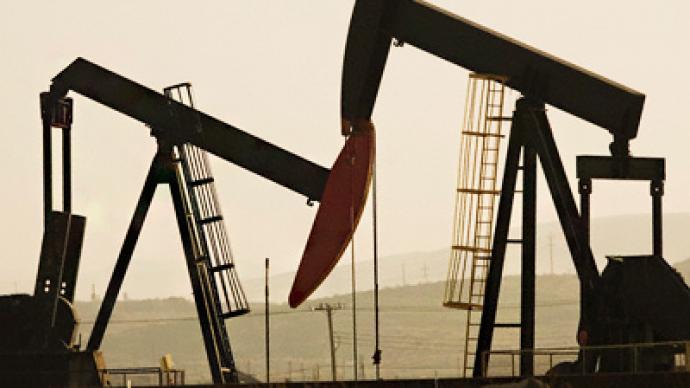Oil prices to drive inflationary pressure

With rising oil prices continuing to generate concern that they could trigger a downturn in global economic growth Business RT spoke with Professor Ismail Erturk from Manchester Business School, about the macroeconomic implications.
RT: How will surging oil prices impact inflation?IE:“Well inflation was going up in certain countries like the UK and in the US as well without a big increase in oil prices. Certainly this political instability and uncertainty will push prices and inflation globally to a higher level.”RT: What happened to the so-called currency wars? Have high oil prices and inflation put an end to them for now?IE: “I think we have the Fed’s (U.S. Federal Reserve) quantitative easing originally started the currency wars, putting pressure on Brazilian Real, and even Russian Rouble and also debate between the US and China about the Renminbi’s value. But I don’t think, I mean, that it is one way of discussing currency wars because U.S. was kind of blaming China, for manipulating its currency, and then the Brazilians, the BRIC countries said, no it is the quantitative easing in the U.S. that is the cause of manipulation, by reducing interest rates through intervention, money supply can influence the currency rates as well. So I think that was the sort of debate between countries, and the term ‘currency wars’ was used. But I think we have turmoil in currency markets. Basically we have most instability, like Sterling is, because of higher inflation in the United Kingdom, and expected interest rate rise in the UK, is going to come in pressure in currency markets. And we have uncertainty in Europe about the debt problem in Greece – it’s not really solved – people are talking about whether Greece should – whether it is going to default or restructure debt – and the problems in Ireland, and Portugal, and so on. So Euro will be under pressure, and these current instability – uncertain oil prices – they will not help Euro either. And U.S. as well, increasing inflation in the U.S. due to high oil prices will put some pressure on dollar as well, because I expect a slight increase in interest rates in the states. So I think, we are going to have lots of turmoil, uncertainty, in currency markets, in a country like Russia as well. Rouble is benefiting from higher energy prices, but is it sustainable and so on. So it going to be a very rough sort of seas as far as currencies are concerned, I think in the next two or three years. Fundamentally we haven’t really solved the financial crisis. we have weak banks, financial markets not operating properly and now this political uncertainty being added. We’ll see lots of turmoil in currency markets.” RT: What do you think about the idea of internationalizing the rouble? Would it help push Moscow into an international financial center?IE: “Well at the moment the Rouble denominated bonds have been popular with some in the investment world. Whether that can sort of make Rouble international currency that people would like to invest in and invest the central bankers would like to keep, I think there is a long way to go because the economic fundamentals in Russia really need to change, and the export from Russia really need to diversify, rather than relying on a volatile sort of commodity. But I think it is very important for rouble to – we currently have hedge funds and international investors seeing currencies as an asset class in itself – so I think Russia authorities need to careful with these Rouble denominated bonds don’t make Rouble as an asset class, but as a currency that reflects the fundamentals of the country, and for exporters and the investors in the country to be able to make long term investment decisions without worrying about what will happen to Rouble in the next six months, and for next two years. But I think the banking system is very important, to the extent that the Russian banks are stable, strong, and the Central bank is an authority, I think those institutional strengths are as important as issuing Rouble denominated bonds in international markets.”














